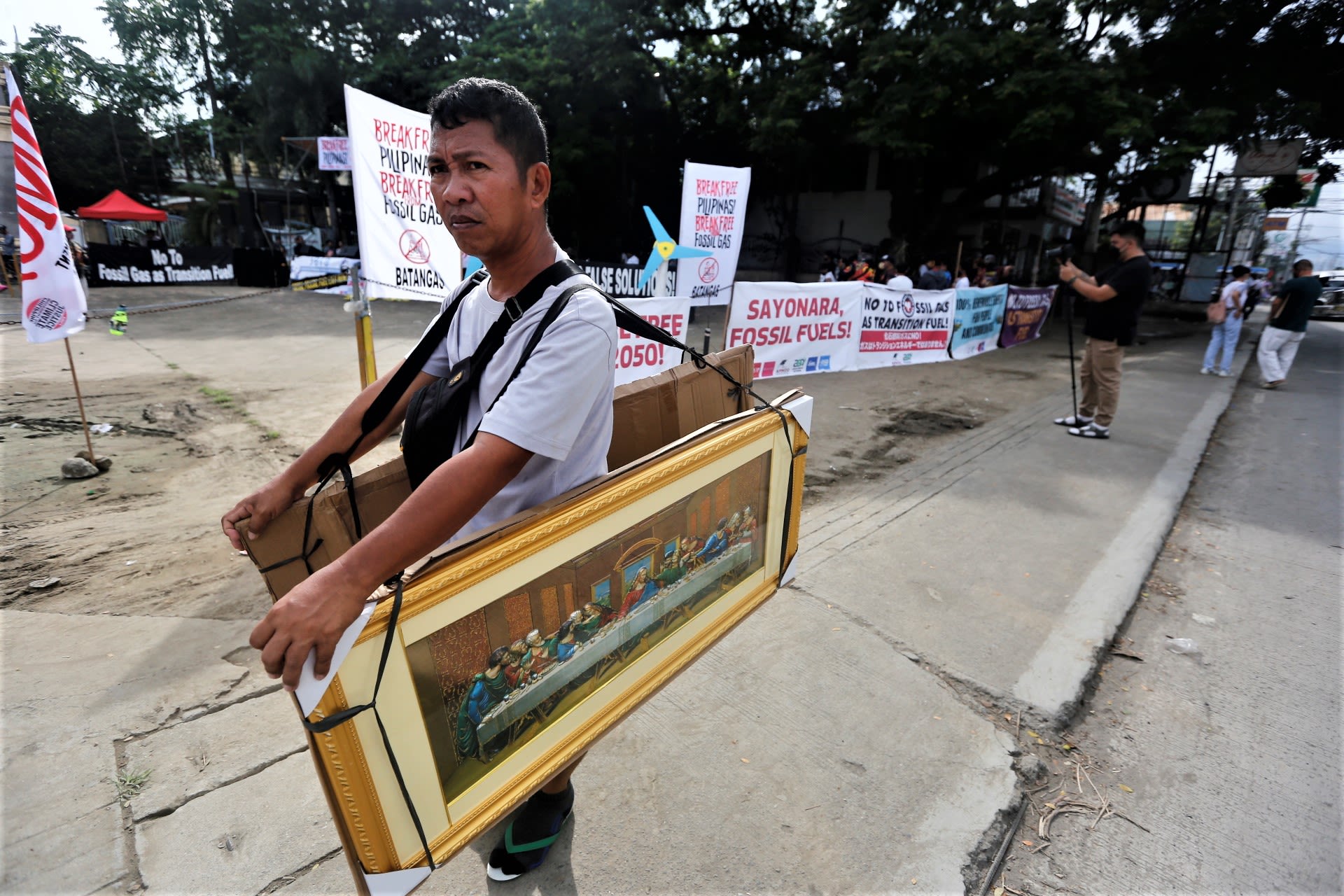
Local communities and climate campaigners staged a protest rally in Batangas City on June 28, 2022 calling on the three biggest Japanese fossil fuel financiers to stop plans for fossil gas and LNG (Liquified Natural Gas) facilities in the province.
By Jimmy A Domingo
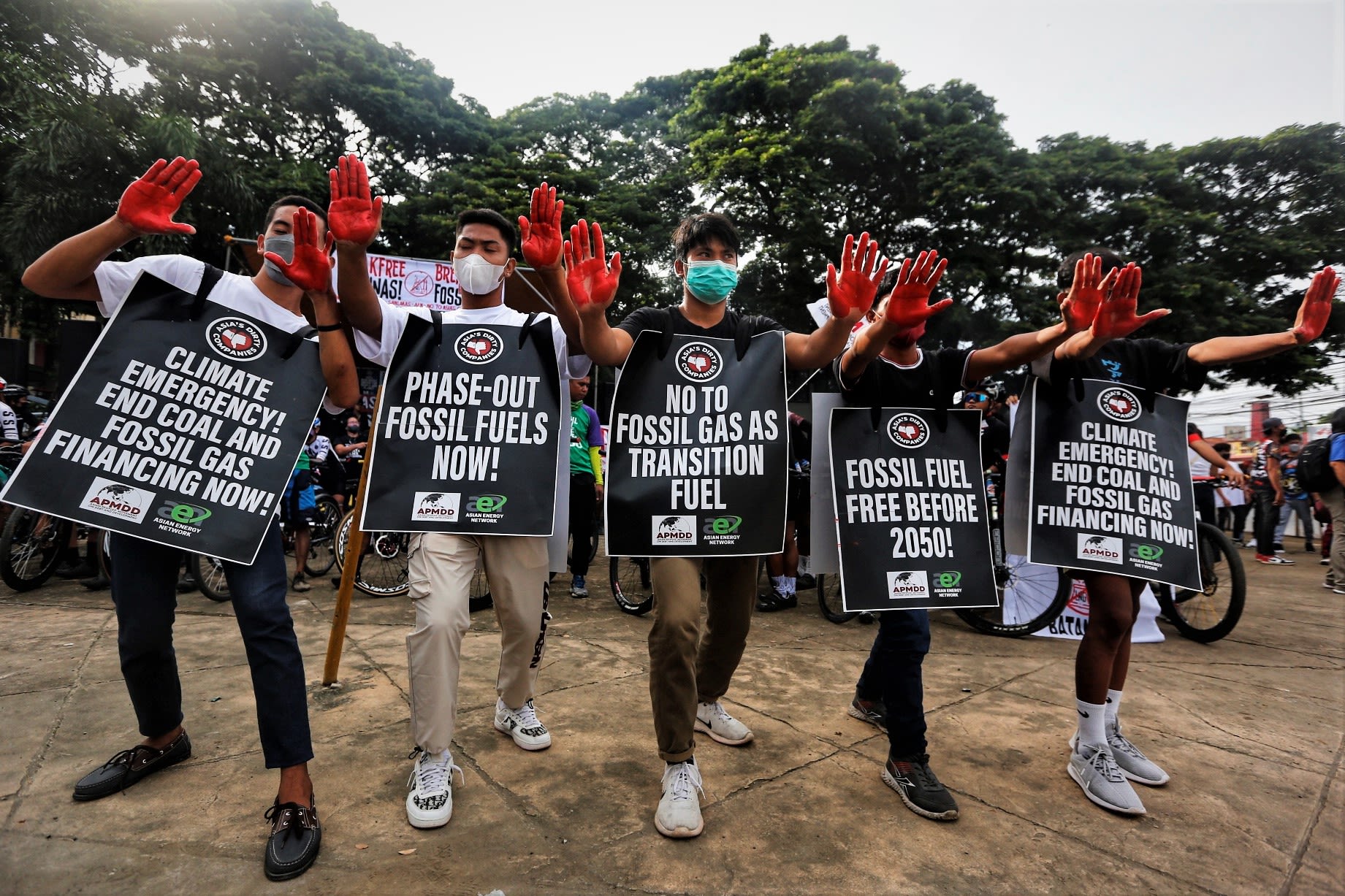
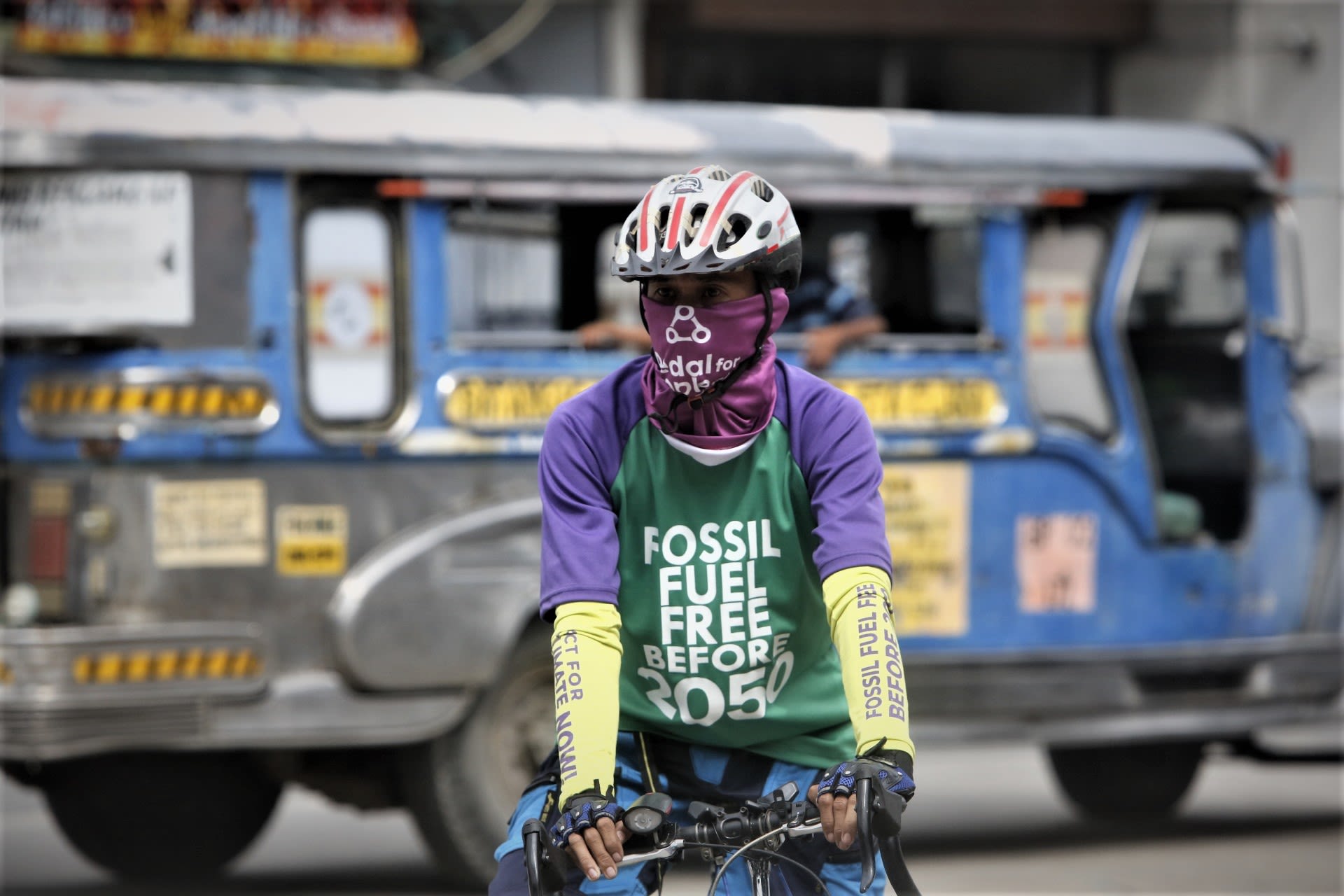
Batangas bikers participate in the protest rally. (Photo by Jimmy A Domingo)
Batangas bikers participate in the protest rally. (Photo by Jimmy A Domingo)

Batangas bikers participate in the protest rally. (Photo by Jimmy A Domingo)
Batangas bikers participate in the protest rally. (Photo by Jimmy A Domingo)
Batangas is one of the biggest fossil gas hubs in Southeast Asia, hosting many gas power plants currently in operation and the site of LNG and Floating Storage Regasification Unit (FSRU) projects in the pipeline. Eight of 27 proposed new plants and seven of nine planned LNG terminals nationally are located in Batangas, especially in Barangays Bolbok, Ilijan, Libjo, Sta. Rita, De la Paz and Matalim in Batangas City, and San Pascual town.
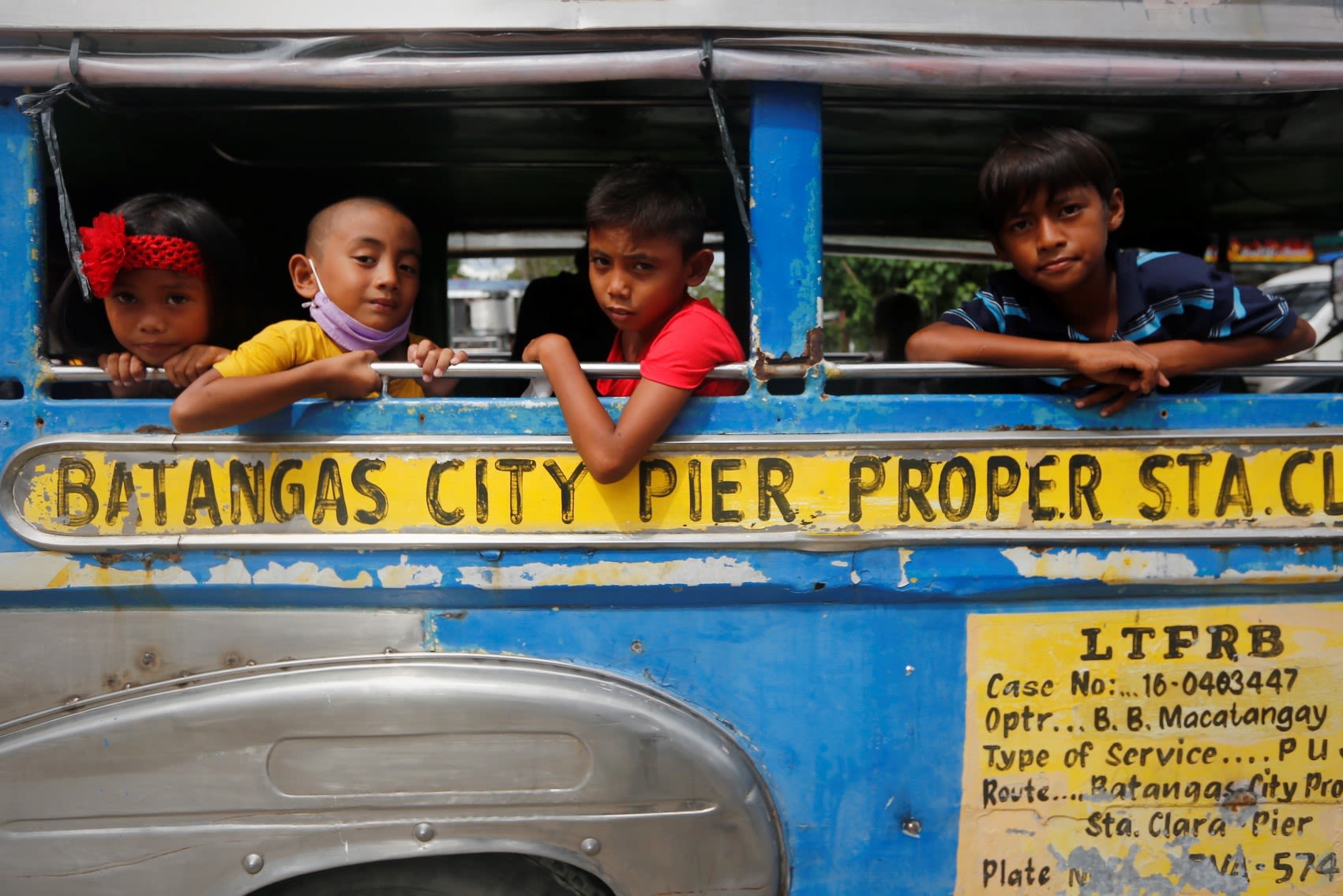
Children watch the concert from their vehicle. (Photo by Jimmy A Domingo)
Children watch the concert from their vehicle. (Photo by Jimmy A Domingo)
Similar actions were held in Navotas City, Pililla in Rizal, Limay in Bataan,Pagbilao in Quezon, Luna in La Union, Lapulapu City in Cebu, Tabango in Leyte, San Carlos City in Negros Occidental and Zamboanga City where new fossil gas projects are slated to be built.
These actions serve as a launch to a nationwide campaign called “Break Free Pilipinas, Break Free from Fossil Gas,” according to organizers. The actions in the Philippines are also part of Asia-wide actions taking place this week, including in Indonesia, Pakistan, India and Bangladesh.
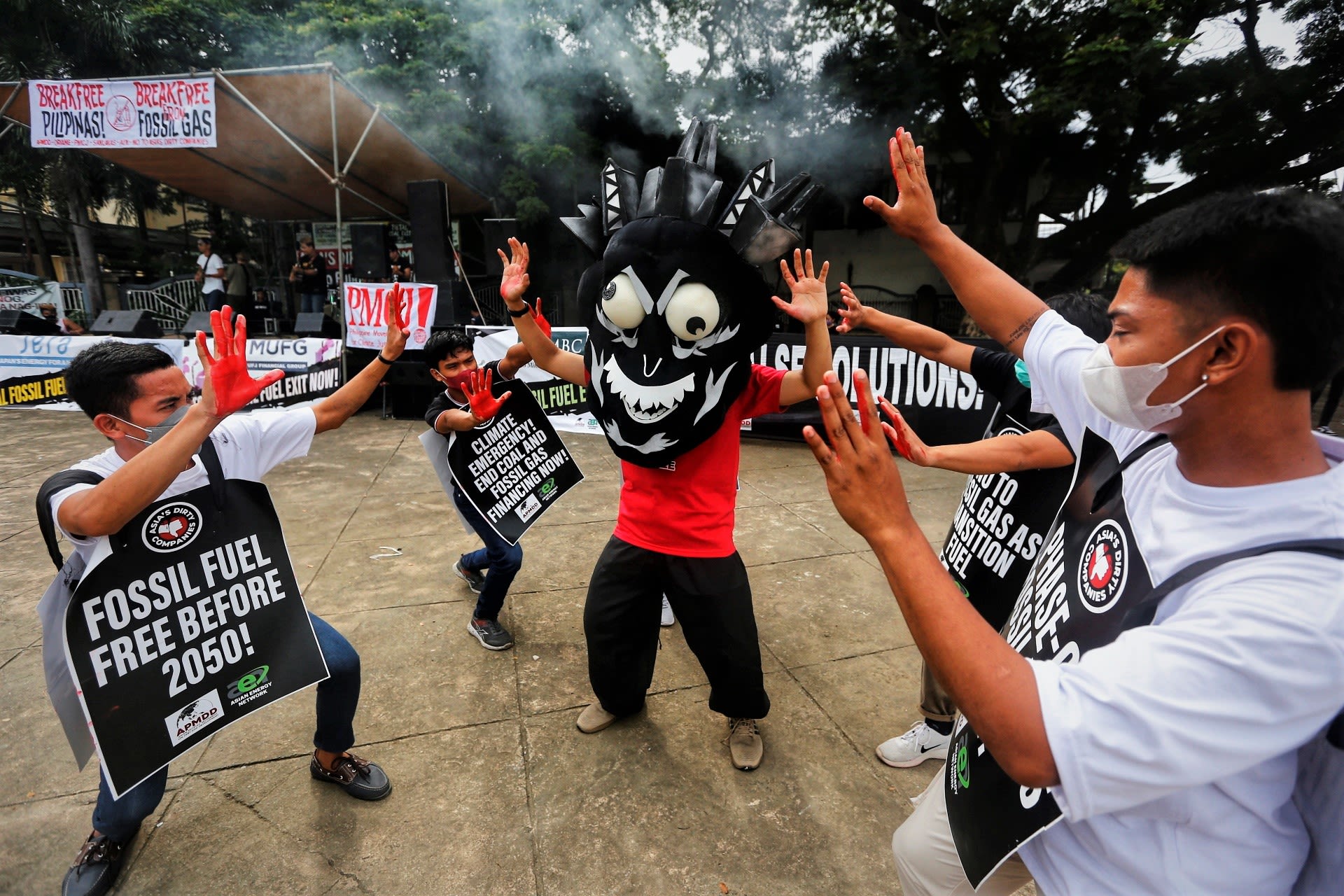
Lidy Nacpil, coordinator of Asian Peoples’ Movement on Debt and Development (APMDD) said the Asia-wide actions are being held on the occasion of the Annual General Meeting of Shareholders of San Miguel Corporation (SMC) and three Japanese fossil fuel financiers: Sumitomo Mitsui Financial Group (SMBC), Mitsubishi UFJ Financial Group (MUFG) and Japan’s Energy For A New Era (JERA).
“These four companies are tagged as part of “Asia’s Dirty Companies”, private and commercial corporations that are leading in the financing and investments in coal and fossil gas projects in the Asian region. We call on them to immediately stop supporting fossil fuels and instead contribute to the rapid, equitable and just transition to renewable and democratic energy systems in Asia,” said Nacpil.
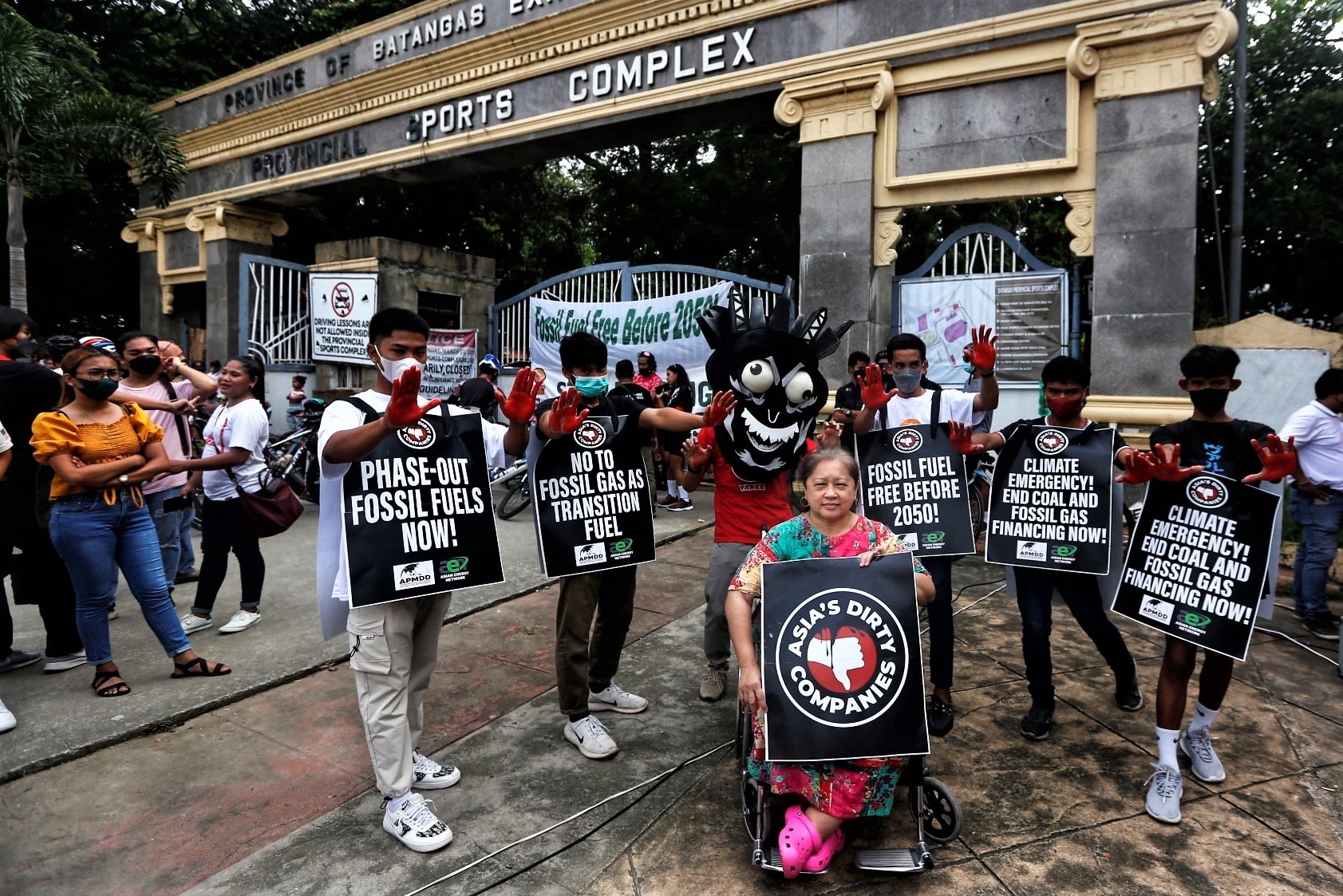
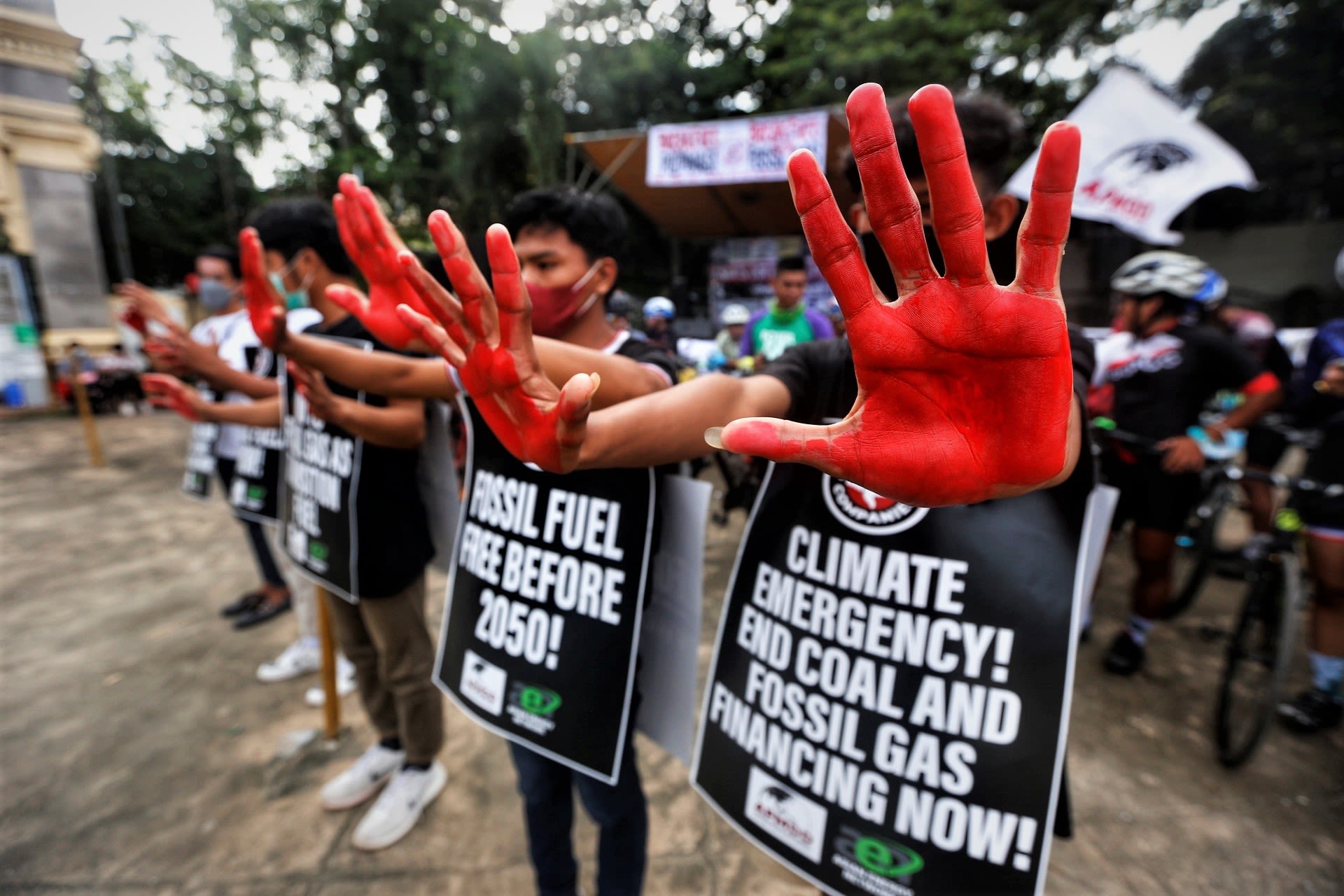
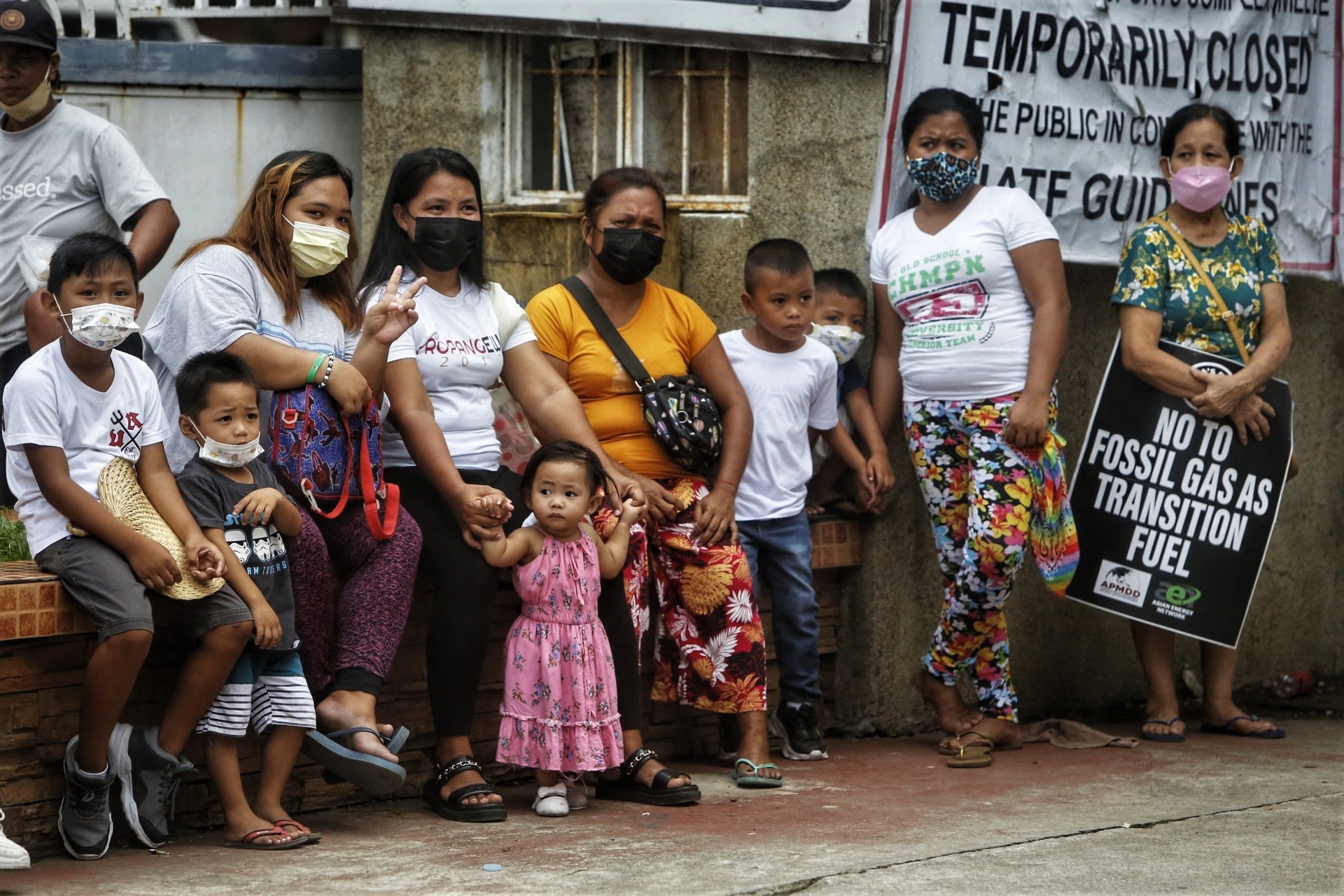
“The energy investment policies of these corporations - SMC, SMBC, MUFG and JERA - are in direct conflict with the goal of the Paris Agreement. They continue to support the expansion of the fossil fuel industry. San Miguel Corporation is involved in the building of most new fossil gas projects in the Philippines despite the fact that we can no longer have new coal, gas and oil projects if we are to limit warming to below 1.5°C and prevent climate catastrophe.” said Ian Rivera, national coordinator of Philippine Movement for Climate Justice (PMCJ).
Youth from the village of De la Paz. (Photo by Jimmy A Domingo)
Fossil gas, commonly referred to as natural gas and LNG in its liquid form, is a fossil fuel touted as cleaner than coal. But fossil gas production emits methane, another greenhouse gas. Methane has a warming effect up to 80 or 90 times more powerful than C02 over a 20-year timescale. Climate scientists warn that emissions from the fossil gas industry are now growing so rapidly and are responsible for much more methane in the atmosphere than previously known.
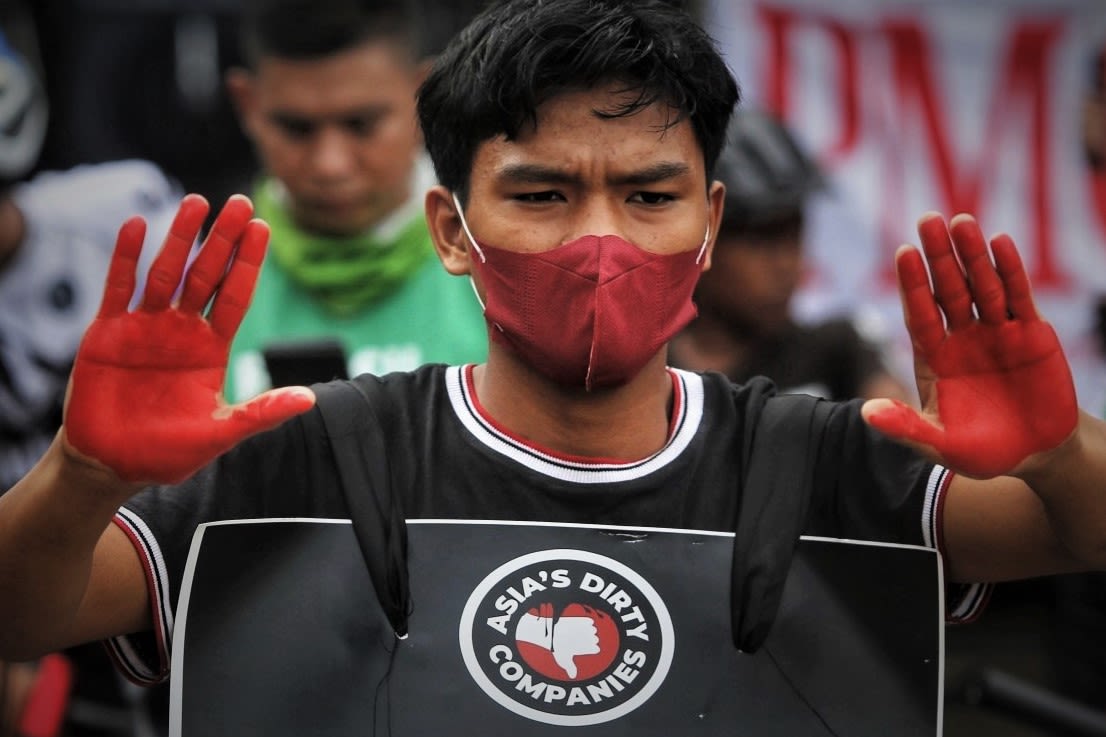
Added Nacpil: “We urge the shareholders of these corporations to push for a major change in the energy investment policies of these companies. We specifically call on SMBC, MUFG and JERA to follow the lead of the Japanese Government which recently pledged to end fossil-fuel financing abroad by the end of 2022.”
“The energy investment policies of these corporations - SMC, SMBC, MUFG and JERA - are in direct conflict with the goal of the Paris Agreement. They continue to support the expansion of the fossil fuel industry. San Miguel Corporation is involved in the building of most new fossil gas projects in the Philippines despite the fact that we can no longer have new coal, gas and oil projects if we are to limit warming to below 1.5°C and prevent climate catastrophe.” said Ian Rivera, national coordinator of Philippine Movement for Climate Justice (PMCJ).

SMBC provides a six -year term financing for the upgrading of First Gen’s San Lorenzo 500 MW LNG Power Plant, in Batangas City. On the other hand, JERA and MUFG are involved in the expansion of the 1.2 GW SMC Ilijan LNG Power Plant for the deployment of FSRU, jetty, mooring, cryogenic pipelines and truck loading facilities. The power plant is co-owned by JERA (10%) and Mitsubishi Corporation (10%), a major pillar of MUFG. JERA is also involved in the acquisition of a 27% ($ 1.58 B) stake in the Aboitiz Power Corporation to develop LNG power projects in the country that will generate an additional increase in capacity of 9.2 GW by 2030.
The latest report of the Intergovernmental Panel on Climate Change (IPCC) shows the urgency of stopping all carbon dioxide emissions globally by 2050 to keep global average temperature rise below 1.5°C and avoid catastrophic climate change. A rapid, just and equitable fossil fuel phaseout must be undertaken to achieve this.
Flor Santos, President of Oriang Women's Movement said that “the impacts of climate change are severely felt by families and communities in developing countries, like the Philippines. We are facing more dire impacts in the next decades that don't make real, major strides towards ending fossil fuel finance.”
